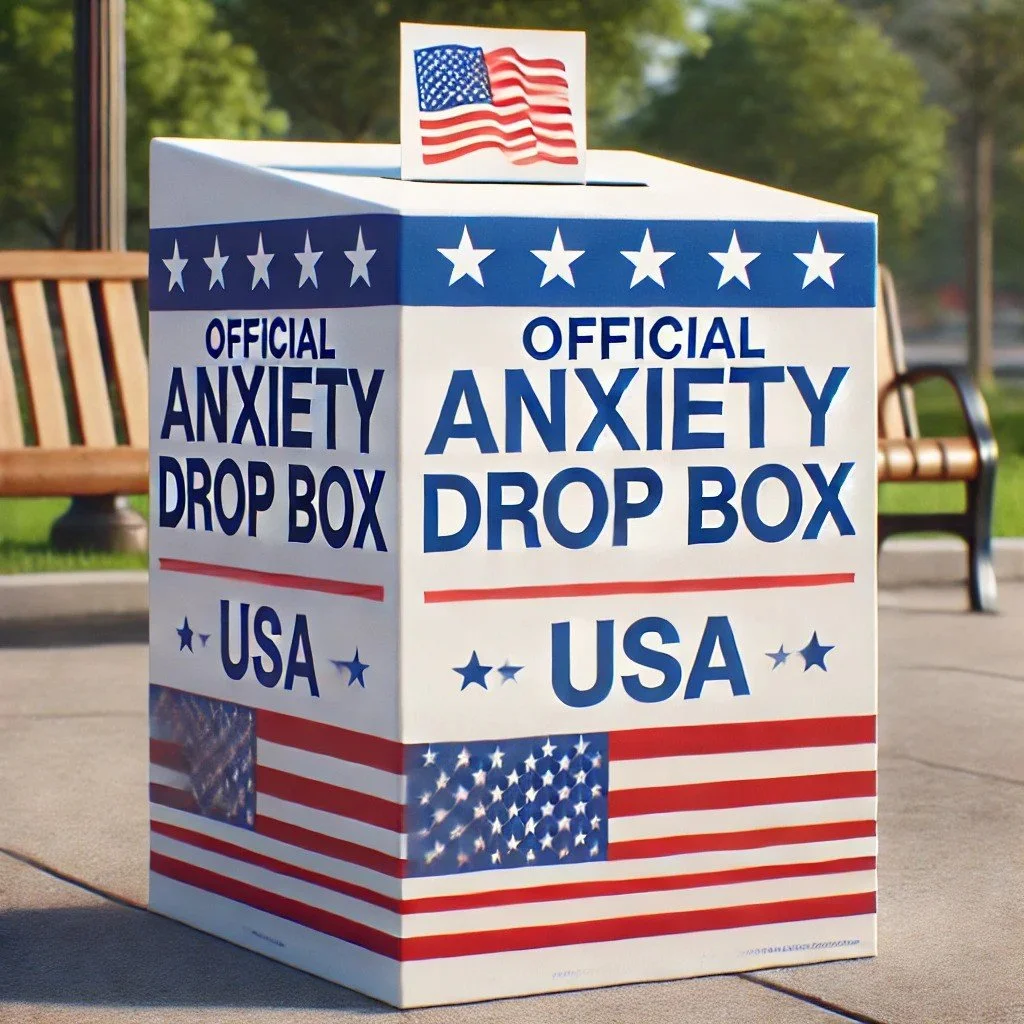What Everyone Gets Wrong About High-Functioning Anxiety
Do you feel like most people don't understand how hard it is for you to get through a typical day? Do you feel like you're always waiting for something bad to happen? Or that if people knew you better they would be disappointed? Do you get stuck on details and feel you have to be perfect? If you said yes to any of these questions, you might be struggling with "high functioning anxiety."
The term "high-functioning anxiety" is misleading. It implies that some people can navigate life well while wrestling with anxiety. This misnomer obscures the nature of anxiety, leaving many suffering quietly. People with high functioning anxiety usually understand they've achieved plenty. You may have lots of external markers of success but still...
you're not happy
you feel alone
you feel constant imposter syndrome
you are totally burnt out
you feel unfulfilled
Breaking Down the Myth of High-Functioning Anxiety
The Paradox of High-Functioning Anxiety
At first glance, those grappling with high functioning anxiety may seem to have it all together. They may have successful careers, active social lives, and achievements to boast. But the term "high-functioning anxiety" simplifies a complex struggle. It dismisses the very real difficulty of coping with anxiety.
Isolation Behind the Smile
High-functioning anxiety often leads to a façade of competence. Perfectionism, people-pleasing, and otherwise performing well are symptoms of anxiety. Those who appear do be doing very well on the outside may be grappling with racing thoughts, fear of failure, and the constant need for validation. This façade can foster isolation, as the outside world remains oblivious to the internal turmoil. People with high functioning anxiety are often afraid that they'll be "found out."
The Prevalence of Anxiety
Anxiety is more common than many realize. According to the Anxiety and Depression Association of America, approximately 40 million adults in the US are affected by anxiety disorders. Yet, only a fraction seek treatment.
Common Questions about Anxiety
Is anxiety a sign of weakness?
Absolutely not. Anxiety is a natural response to stress and can affect anyone. Some people are born predisposed to it, and some develop it in a stressful environment.
What causes anxiety?
Anxiety is highly personal and the causes vary. For some, there's a natural predisposition to anxiety. For others, certain life factors can create anxiety. Most often, we see work and relationships raising anxiety. Trauma can also lead to anxiety.
Can anxiety be cured?
While complete elimination might not be possible or even advisable, effective management and coping strategies can lead to significant improvement in symptoms.
Is anxiety the same for everyone?
No, anxiety manifests differently in each person. It can range from generalized anxiety to specific phobias and panic disorders.
The Long-Term Cost of High Functioning Anxiety
In addition to decreasing quality of life, anxiety can create longlasting health effects. It makes people more prone to burn out and burnout-related illness. These are not to be taken lightly! Burnout can cause a host of physical health concerns.
The Mask of High-Functioning Anxiety
Appearance vs. Reality
When a professional is excelling, praised for their achievements, it doesn't mean they're not plagued by self-doubt and worry. High-functioning anxiety often involves perfectionism and overachievement as coping mechanisms, further perpetuating the myth that these individuals are not struggling.
The Toll Anxiety Takes on Relationships
Maintaining the appearance of having it all together can strain personal relationships. Friends and family may fail to recognize the distress, assuming the person is managing well. This lack of understanding can deepen the sense of isolation. If you’ve got a partner with anxiety, we’ve got tips for improving your relationship here.
The Power of Holistic Therapy for Anxiety
Holistic therapy considers the individual as a whole, addressing the interconnectedness of mind, body, and meaning. Unlike other treatments, it goes beyond symptom management, seeking to understand and heal the root causes of anxiety.
Examples of Holistic Therapy Approaches For Anxiety
Time Spent Meaningfully. Your anxiety therapist may help you identify things that are meaningful in your life and help you implement more of them. If you’re passionate about the environment, getting involved in local permaculture efforts could directly lower your anxiety.
Examining Relationship Quality. Our social surroundings play a significant role in our mental health. Looking at your social environment and setting boundaries and making adjustments might create a significant shift in your mood.
Ruling Out Medical Concerns. Anxiety therapists often know some of the telltale signs that there may be a medical condition to examine. Hormone issues, vitamin deficiencies, and other medical issues can masquerade as mental health issues. Most often, they contribute to anxiety but aren’t the sole cause of it. Our anxiety therapists work collaboratively with your doctor to provide wraparound care.
Mindfulness and Meditation. Techniques that promote present-moment awareness can help manage anxious thoughts.
Yoga and Physical Activity. Physical movement can alleviate stress and improve overall well-being.
Art and Expressive Therapies. Creative outlets provide a non-verbal means of exploring and expressing emotions.
From Hidden Anxiety To Calm Through Holistic Therapy: Meet Sarah
Sarah is a fictional example used to demonstrate concepts of holistic therapy
On the surface, Sarah appears to have it all together. She's a successful marketing executive, highly regarded by her colleagues and friends. She's always the first to volunteer for new projects and seems to effortlessly juggle multiple responsibilities. But under her composed exterior she's in a constant state of unease.
Sarah is plagued by self-doubt and a relentless fear of failure. Every decision, every interaction is scrutinized through the lens of perfectionism. Her mind is a whirlwind of worries, her thoughts racing faster than she can keep up.
At home, Sarah finds it increasingly difficult to unwind. Even in moments of relaxation, her mind is consumed by what-ifs and worst-case scenarios. The pressure to maintain appearances takes a toll on her relationships. She distances herself from friends and family, afraid to reveal the extent of her struggles.
Feeling trapped by her own mind, Sarah decided to seek help from and anxiety therapist. She'd heard about holistic therapy and its emphasis on addressing the root causes of anxiety. With nothing to lose, she scheduled a consultation with a holistic therapist.
In therapy, Sarah learned to reconnect with herself on a deeper level. Through mindfulness techniques, she discovered a newfound sense of protection from the treadmill of her thoughts. Regular movement provided a much-needed release for the tension that had built up in her body over time. She also checked in with her doctor, who ran a few tests and discovered a vitamin deficiency was contributing to her anxiety. She talked through childhood experiences and important relationships. She was surprised to realize that her internal critic had once been external in her grandmother, who was a primary caretaker. She started recognizing her inner critic as an adaptive coping mechanism that wasn't working for her anymore.
As Sarah progressed in therapy, she began to unravel the layers of her anxiety. Together with her anxiety therapist, she identified patterns of thought and behavior that have contributed to her distress. Through gentle guidance, Sarah learned to challenge her inner critic and cultivate self-compassion. She also started engaging more with things that were meaningful to her. Even though she was busy, she started volunteering a few days a month at a dog rescue in her neighborhood. She found such joy and purpose, and looked forward to her afternoons with the puppies.
Over time, Sarah experienced a profound shift in her relationship with anxiety. No longer bound by the need for perfection, she embraced the imperfections that make her human. She discovered a newfound sense of freedom in authenticity, no longer afraid to let others see her vulnerabilities. Best of all, she was able to be truly present in her day-to-day life. Time with friends, important meetings, and life milestones were things she got to experience fully for the first time.
Holistic therapy offered Sarah the tools and support she needs to navigate life with greater ease. While anxiety may always be a part of her journey, Sarah now has the resilience to face it.
By addressing the interconnectedness of mind, body, and meaning, holistic therapy offered Sarah healing beyond symptom management. For anyone struggling with anxiety, holistic therapy can be the first step toward reclaiming a sense of balance and well-being.
Holistic Therapy For Anxiety
If you or someone you know is grappling with anxiety, seeking support is a crucial step toward healing. Holistic therapy offers a compassionate approach, acknowledging the multifaceted nature of anxiety and providing tools for lasting change.
Work With One of Our Anxiety Therapists in California & Florida
If you're ready to end the silent struggle of high-functioning anxiety, our anxiety therapists in California and several other states are here to support you. Schedule a free consultation today to take the first step toward a more balanced life. Your mental health matters, and help is just a click away.


















